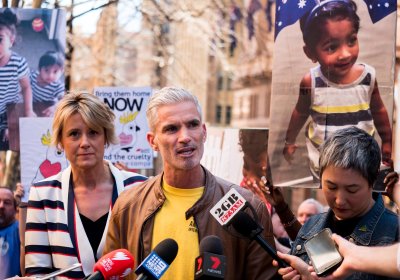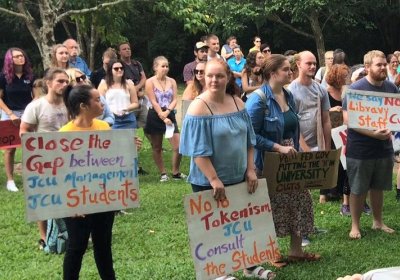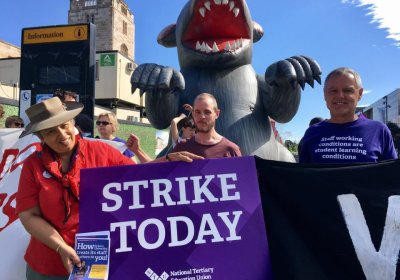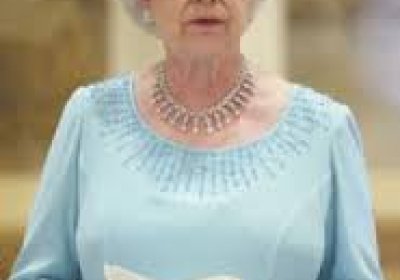Jonathan Strauss joined the September 1 vigil in Cairns for the Biloela family of Priya, Nades and their two children and writes about the growing impact of the refugee rights mvement.
Jonathan Strauss
Mainstream talk of Queenslanders embracing the Coalition at the federal elections is louder than ever but the facts are otherwise, writes Jonathan Strauss.
Populism Now! The Case for Progressive Populism
David McKnight
New South, 2018
177 pages, rrp $29.99
David McKnight’s Populism Now! catches a wave of discussion about the chances for a progressive “populism”, writes Jonathan Strauss.
Also in the spray, for example, is a June Quarterly Essay piece by the Australia Institute’s Richard Denniss “Dead Right: how neoliberalism ate itself and what comes next” and the previously post-whatever Chantal Mouffe’s musings on “left populism”.
Staff and students at James Cook University (JCU) in Townsville and Cairns have refused to accept course and job cuts proposed by the university’s management.
The highlight of the campaign was a 120-strong student-led rally on April 30 at the Cairns campus, the largest student protest action in more than a decade at JCU. Students also joined the community protests called by the National Tertiary Education Union (NTEU) branch on April 27.
Staff at James Cook University in northern Queensland — at least half of whom are employed casually, and often infrequently — have rejected a management proposal for an enterprise agreement at the university. Of the 54% of staff who voted, 58% voted against the proposal in the non-union ballot held over September 13–15.
National Tertiary Education Union members mobilised in the brief one-week consultation and balloting period to secure a vote nearly three times their own numbers.
Far North Queensland Stop Adani groups mobilised when the Queensland government announced its latest "governing from the regions" exercise would be in Cairns over July 10–14.
They wanted their message that the massive Carmichael coalmine must be stopped to become the main issue and not the government’s pork-barrelling.
Stop Adani groups are rapidly springing up in cities and towns across northern Queensland, intent on helping the movement against the company’s Carmichael coalmine.
Campaign roadshows have been springboards, including in Townsville and Port Douglas, with others proposed for Gordonvale and the Atherton Tablelands.
The Labor and Liberal National parties hope to slip in four-year fixed parliamentary terms in Queensland through a referendum being held at the same time as state-wide polls for local councils. A four-year term proposal was defeated in 1991.
 Two examples of development proposals that put profit before people and the environment in Far North Queensland appear to have suffered defeats.
Two examples of development proposals that put profit before people and the environment in Far North Queensland appear to have suffered defeats.
- Previous page
- Page 4
- Next page










